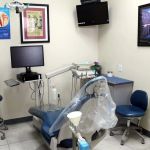How to Treat Bad Breath Caused by Sinus Issues
- 1. Understanding Bad Breath Caused by Sinus Issues
- 2. Why Sinus Problems Lead to Bad Breath
- 3. Treatments for Bad Breath Caused by Sinus Issues
- 4. Prevention Tips for Sinus-Related Bad Breath
- 5. When to Seek Professional Help
1. Understanding Bad Breath Caused by Sinus Issues
Bad breath, also known as halitosis, can sometimes be a result of sinus issues. Many people experience bad breath as a common side effect of sinus congestion, allergies, or sinus infections. The sinuses are air-filled cavities in your skull, and when they become infected or inflamed, they can produce mucus, which can lead to an unpleasant odor in your mouth.
In this article, we will explore how sinus issues contribute to bad breath and provide tips on how to manage and treat it effectively. Whether you’re dealing with sinusitis or seasonal allergies, understanding the connection between sinus problems and bad breath can help you find the right solutions for better breath and overall health.
2. Why Sinus Problems Lead to Bad Breath
Sinus problems contribute to bad breath in several ways. When your sinuses are blocked due to an infection, cold, or allergy, mucus can accumulate and begin to drip down the back of your throat, a condition called post-nasal drip. This thick mucus can coat the back of your throat, creating a breeding ground for bacteria, which is the primary cause of bad breath.
Additionally, sinus infections can cause inflammation and swelling in the nasal passages, preventing normal airflow. As a result, the bacteria that thrive in the sinuses and mouth can lead to an unpleasant odor. Some other contributing factors include:
- Excessive mucus production
- Dry mouth due to reduced airflow through the nose
- Bacterial buildup in the sinuses and mouth
By addressing these underlying sinus issues, you can significantly reduce the bad breath caused by sinus congestion.
3. Treatments for Bad Breath Caused by Sinus Issues
There are several effective ways to treat bad breath caused by sinus problems. Here are some remedies that can help:
- Hydrate and Use a Humidifier: Keeping your throat and sinuses hydrated helps thin mucus and reduces post-nasal drip. Using a humidifier at night can help keep your airways moist, preventing dryness and discomfort.
- Saline Nasal Sprays: A saline spray can help clear out mucus from your sinuses, alleviating congestion and reducing the bacteria responsible for bad breath.
- Steam Inhalation: Inhaling steam from a hot shower or a bowl of hot water can help loosen mucus and clear your sinuses, providing relief from both sinus congestion and bad breath.
- Over-the-Counter Decongestants: If your sinus issues are caused by allergies or congestion, using decongestants can reduce inflammation in the nasal passages and allow for better airflow.
- Regular Brushing and Mouthwash: Brushing your teeth and using mouthwash regularly can help remove bacteria from your mouth that may contribute to bad breath. Make sure to brush your tongue, as bacteria often accumulate there.
These treatments address both the sinus congestion and the bad breath caused by it, offering relief and improving your oral hygiene simultaneously.
5. When to Seek Professional Help
If you continue to experience bad breath despite trying at-home treatments, it may be time to consult a healthcare professional. Persistent bad breath could indicate chronic sinusitis, sinus infections, or other underlying health conditions that require medical attention. A doctor or dentist can provide a thorough examination, recommend treatments, and guide you toward better management of your symptoms.
If sinus problems are the root cause, an ENT (Ear, Nose, and Throat) specialist can help you identify the source of the issue and offer more specific treatments or surgeries if needed.
To maintain optimal sinus and oral health, don’t hesitate to reach out to professionals for assistance.
For more information on treating bad breath caused by sinus issues, check out helpful tips and resources at Dentistry Toothtruth.







 Blue Wave Ortho - Rye4.0 (78 review)
Blue Wave Ortho - Rye4.0 (78 review) Just for Kids Dentistry4.0 (325 review)
Just for Kids Dentistry4.0 (325 review) Ukani Dental4.0 (95 review)
Ukani Dental4.0 (95 review) Juan Carrillo, DMD4.0 (334 review)
Juan Carrillo, DMD4.0 (334 review) ForwardDental Madison East4.0 (165 review)
ForwardDental Madison East4.0 (165 review) Farrow Orthodontics - Mt. Airy4.0 (682 review)
Farrow Orthodontics - Mt. Airy4.0 (682 review) The Importance of Oral Health Education During Pregnancy for a Healthy Pregnancy
The Importance of Oral Health Education During Pregnancy for a Healthy Pregnancy Best Tips for Brushing Your Teeth Properly for Healthy Gums: Essential Techniques for Oral Health
Best Tips for Brushing Your Teeth Properly for Healthy Gums: Essential Techniques for Oral Health Why Skipping Dental Checkups Can Lead to Bigger Oral Health Problems
Why Skipping Dental Checkups Can Lead to Bigger Oral Health Problems Advantages of Porcelain Dental Restorations
Advantages of Porcelain Dental Restorations How Can Diabetes Cause Tooth and Gum Problems? Preventing and Managing Oral Health Issues
How Can Diabetes Cause Tooth and Gum Problems? Preventing and Managing Oral Health Issues Healthy Habits for Promoting Good Oral Health and Hygiene: Tips for a Healthy Smile
Healthy Habits for Promoting Good Oral Health and Hygiene: Tips for a Healthy Smile